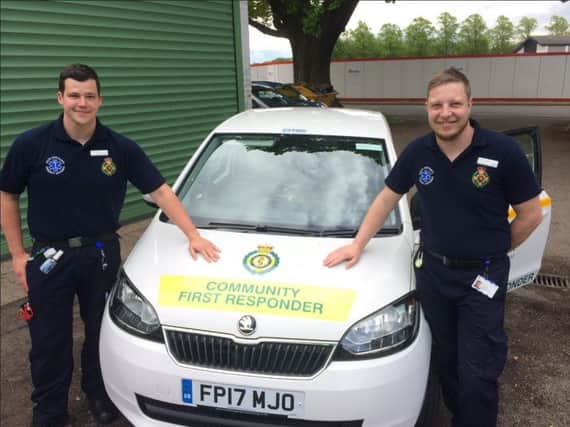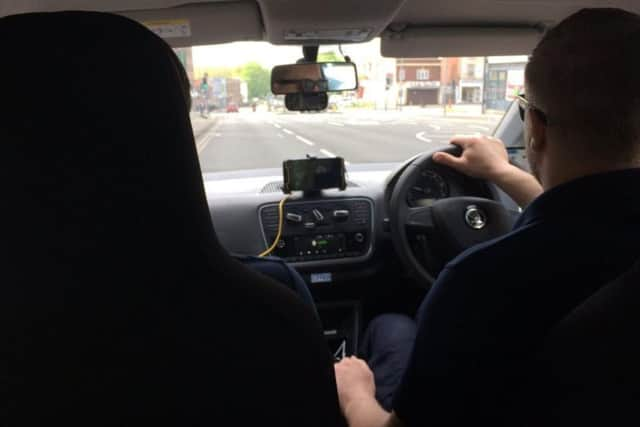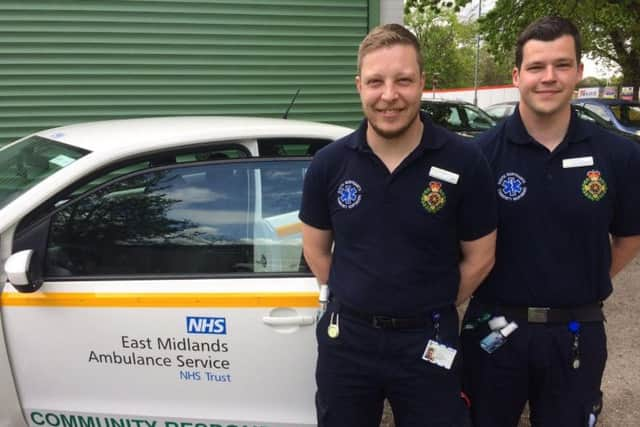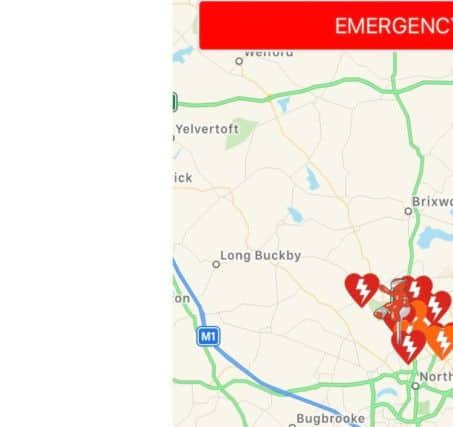On call with the community first responders saving lives every day in Northampton


But at least in Northampton, a team of some 40 volunteers are making sure there is always someone there when an emergency strikes.
It’s a shame then for teams like the South Northants Community Responders that most people don’t know they exist until they’re stepping through their front door with their medical bags in hand.
Advertisement
Hide AdAdvertisement
Hide Ad“A lot of people don’t know what we do,” says the scheme’s co-ordinator David Smith. “We get a lot of jobs where we reach a patient’s house before the ambulance and find them all ready with their coats on for us to take them to hospital. I’d be surprised if we would all fit in the car.”


To find out more about how the SNCR are saving lives in Northampton, the Chronicle & Echo joined them for a morning on patrol.
And they aren’t doing it in the back of a speeding ambulance. Today, David is driving to emergency call outs in a modest two-door white Skoda. There is room for fellow first-responder Conor in the passenger seat, the responder backpack in the boot - and that’s about it.
At the moment, the two are on their way to check the battery on a portable defibrillator in Kingsthorpe.
Advertisement
Hide AdAdvertisement
Hide Ad“It’s not an ambulance,” says David. “We’re not equipped to take people to hospital. And we certainly can’t run traffic lights for a job. We don’t have blue lights.”


Instead, David and Conor have a smart phone fixed to windscreen – ready for a text from their control room to say they are needed somewhere.
Conor said: “We take a lot of 111 allocations. Some patients need help at their home when there isn’t an ambulance available yet. Or sometimes one isn’t needed. It’s a call the phone operators have to make.”
Suddenly there was a call. David and Conor were needed at a house in Kingsthorpe. The only detail the text from control could give them was to expect a “traumatic injury”.
Advertisement
Hide AdAdvertisement
Hide AdThey were at the house in roughly eight minutes. The ambulance would get there some 15 minutes later.


What’s important is a woman needed to go to hospital. And just as important, her husband needed someone to talk to.
That’s where the SNCR were ready to help. While an ambulance crew often just doesn’t have the time to talk to the families about what is happening, Conor and David stayed for 15 minutes after the crew had left. They put a friendly hand on the husband’s shoulder and told him his wife was in the safest hands. When he needed to talk about how scary the past hour had been, they listened. They brought him a drink of water, and told him he had done the best he could.
Afterwards, back in the car, Conor said: “First response and making an assessment is a part of what we do. But just as important is spending a bit of time sitting with the family afterwards and explaining what is happening. Maybe make them a cup of tea.
Advertisement
Hide AdAdvertisement
Hide Ad“As soon as the ambulance leaves the family can be just left shocked and wondering what’s next. It’s something the ambulance crews don’t have time to explain.”
The SNCR are helping Northampton’s families in a crucial way. The team of some 40 volunteers have helped save lives at dozens of lives at cardiac arrests and respiratory attacks. But they are also doing amazing work for the mental wellbeing of patients and their families in the wake of an emergency.
No-one on the team is paid for this. They are asked to find 200 hours of volunteering time a year to be on patrol. But David and Conor had both already clocked up more than that by early April. One volunteer put in 1,000 hours in 2018.
“We’re all just interested in medicine. And it takes all sorts,” says David. “I’m a policeman. Conor is a security guard. We’ve got graphic designers, a lawnmower salesman, one of us is a mental health nurse.
Advertisement
Hide AdAdvertisement
Hide Ad“We all try to fly the flag and let people know more about who we are and what we do, even before we have to turn up at someone’s house for an emergency. Even the ambulance crews can be surprised to see us.”
The fleet of 16 cars SNCR use are funded by the East Midlands Ambulance Service. In fact, all their funding comes from grants and support.
The team as a whole do a lot of work to fund defibrillators for Northampton's parishes and rural villages, as well as training them residents on how to access and use them in an emergency.
With this, the SNCR team attend some 165 jobs a month. And the stats show they are saving lives and helping the residents and families of Northampton when they need it most.
Advertisement
Hide AdAdvertisement
Hide AdGoodSamaritan - How an emergency phone app is making sure no one in Northampton is more than five minutes away from help
A first-aid app is saving lives in Northampton by making sure trained Responders are never more than a few minutes from help during a cardiac arrest or life threatening emergency.
Conor, David and the SNCR team are all signed up to GoodSam - an app that alerts Responders trained in Cardio Pulmonary Resuscitation (CPR) to help those nearby in cardiac arrest.
Anyone trained in CPR can sign up to the app - and if a 999 call is made within 800 metres of them, East Midlands Ambulance Service will alert GoodSam who notify the nearest trained Responders.
Advertisement
Hide AdAdvertisement
Hide Ad“It means we are almost never off duty,” says Conor. “Even in your downtime you can still be ready to help someone.
“It means I’ve had to leave the house at 2am in my pyjamas but I know it’s could be something important.”
The GoodSAM system can even generate live stream video from a caller's smartphone for 999 call handlers to assess the emergency.
The app was co-founded by Mark Wilson, a neurosurgeon and Air Ambulance Doctor with the goal of providing assistance during life threatening emergencies in the minutes before Ambulance arrival. Anyone trained and certified in CPR can register and download the GoodSam Responder app.